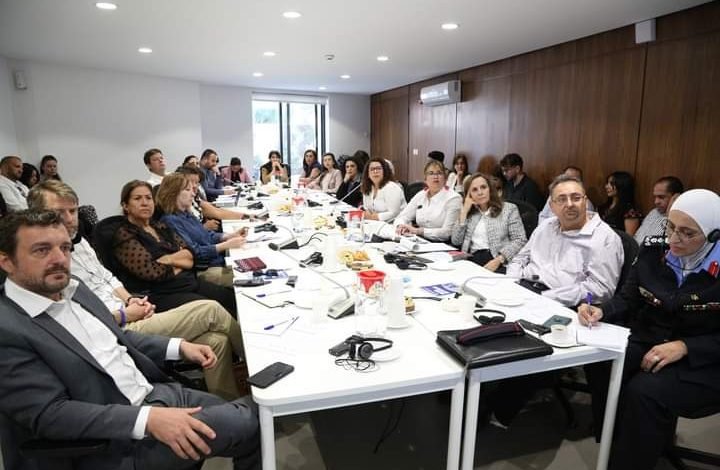
Jordan Daily – The Arab Renaissance for Democracy and Development (ARDD) and the UN Women Jordan Country Office organized a roundtable meeting in Jordan, with the aim of advancing the localization of UNSCR 1325 on Women, Peace, and Security. The meeting highlighted the vital role of local civil society organizations led by women in this process.
In a statement sent to Jordan Daily ,the roundtable focused on empowering women-led civil organizations and using local research to improve the implementation of the Jordan National Action Plan on Women, Peace, and Security (JONAP). To gain a deeper understanding of the challenges faced by these organizations, ARDD conducted a study, focusing on the opportunities and obstacles encountered by civil society in enhancing human security in conflict, post-conflict, and crisis-affected contexts.
ARDD’s Executive Director, Samar Muhareb, expressed the organization’s commitment to the Women, Peace, and Security Agenda since 2012. Through projects, research, and policy briefs, ARDD addressed various issues faced by women, such as financial vulnerability, care work redistribution, and domestic violence research localization, particularly in response to the refugee crisis and the impact of the COVID-19 pandemic.
Nicolas Burniat, UN Women Representative in Jordan, emphasized the importance of collaboration among various stakeholders, including the military, government, civil society organizations, development partners, and the United Nations. This partnership has been essential in successfully implementing the JONAP and the broader Women, Peace, and Security Agenda in Jordan, especially during the COVID-19 pandemic. Burniat also highlighted the need to support greater engagement of women-led civil society organizations in humanitarian and development work in Jordan.
Dr. Sana Jelassi, Senior Advisor of the Gender and Youth Empowerment Program at ARDD, praised the role of the Jordan NGOs Forum (JONAF) in responding to local communities during the COVID-19 pandemic and stressed the active involvement of civil society in promoting women’s participation in decision-making processes and peacebuilding.
Presenting the ongoing study’s findings, Eleonora Banfi, a Senior Researcher at ARDD, emphasized the importance of identifying opportunities for women and providing recommendations to decision-makers. She called for increased support and guidance for civil society organizations in achieving the goals of the second phase of JONAP and promoting dialogue between stakeholders.
Colonel Dr. Dalal Sawalha, the Director of the Women’s Police Department, highlighted the link between security and development, emphasizing the need to address various societal challenges such as health, education, food insecurity, water scarcity, and climate change.
During the roundtable, participants also discussed the significance of developing funding mechanisms, establishing monitoring and follow-up processes, and improving knowledge about localizing humanitarian action. They recommended integrating the most vulnerable groups in these interventions and adopting the terminology used by civil society to effectively address the needs of Jordanian society. The participants recognized the crucial role of civil alliances in reaching women in vulnerable areas, particularly during the COVID-19 pandemic, to enhance their capabilities and understand their needs and required interventions.

